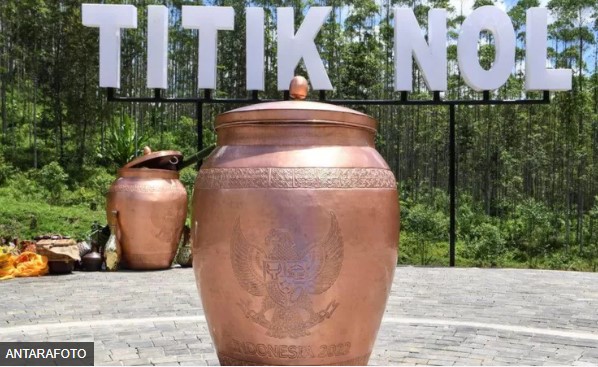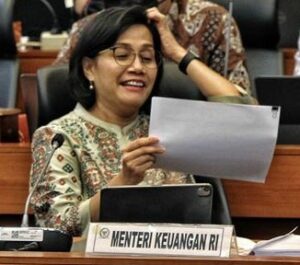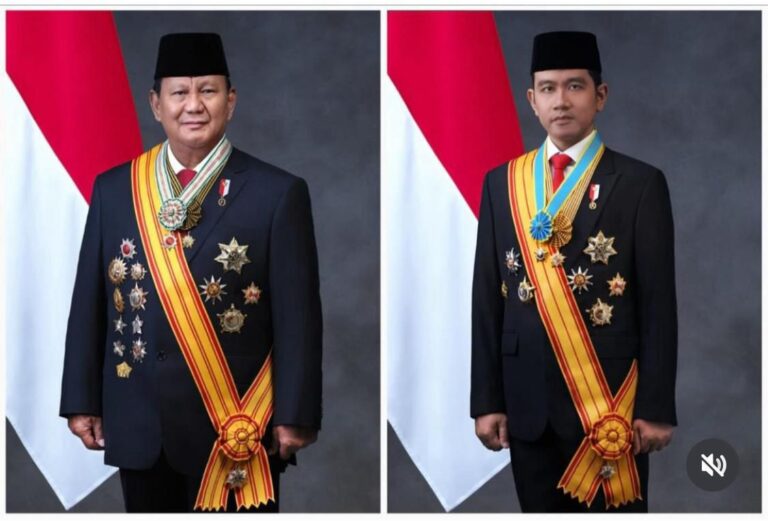
STRATEGIC ASSESSMENT. The government spending on the ambitious capital relocation project has reached Rp 5.5 trillion ($336 million) as of May, according to Finance Minister Sri Mulyani.
The government has only used up 13.7 percent of this year’s new capital budget, which amounts to Rp 40 trillion. About Rp 3.4 trillion of the already spent money went to infrastructure works — including the state palace complex — as Indonesia rushes to meet the deadline of hosting the Independence Day ceremony at the new capital of Nusantara this August. The government plans to put no more than Rp 36.7 trillion for Nusantara’s infrastructure needs throughout this year.
“Hopefully, the new capital will be ready by the time we celebrate Independence Day on Aug. 17. .. We have also spent [the new capital money] on housing for civil servants and law enforcement officers, as well as tollway, hospital, VVIP airport, among others,” Sri Mulyani told a press briefing.

Indonesia’s Nusantara Capital City (IKN) Authority has prepared guidelines for the reclamation of land disturbed by mining activities to restore and rehabilitate the ecosystem of the area that will soon become the country’s new capital replacing Jakarta. Myrna Safitri, IKN’s deputy for environment and natural resources, said they had conducted a public consultation on the issue.
“Right now we are preparing for the finalization,” Myrna said at the World Environment Day 2024 celebration in Penajem Paser Utara, East Kalimantan as reported by Antara.
Myrna said the guidelines were prepared to make it easier for mining business permit (IUP) holders to carry out reclamation and post-mining activities, as well as to support the companies’ environmental, social and governance (ESG) performance.
The policy also aims to ensure that reclamation and post-mining activities in IKN are in line with the spatial function and direction of IKN’s development policy.
Public Works and Public Housing Minister Basuki Hadimuljono has informed that the construction of the presidential palace and several government buildings in Indonesia’s new capital Nusantara will be completed in July 2024.
“Inshallah (God willing), we will complete the palace, president’s office, coordinating ministers’ offices, ministers’ houses, and 12 civil servants’ residential towers in July,” he said.
According to him, the progress of the construction of the presidential palace and government buildings, including the civil servants’ residential towers, has so far reached 82 percent. Meanwhile, the transfer of civil servants to the new capital will be carried out in stages after August, he informed.
According to ASEAN Wonk, “I am committed to advancing Indonesia toward achieving its objective of becoming a fully-developed country by 2045,” Indonesia’s president-elect Prabowo Subianto noted earlier this month in the latest of a series of commentaries meant to preview his vision for the world’s fourth-largest country.
Interestingly and perhaps unsurprisingly, despite a long list of sectoral priorities in Prabowo’s piece from technology to food security, there was no direct mention of Indonesia’s ambitious effort to relocate some capital functions from Jakarta to Nusantara, a priority project of outgoing president Joko “Jokowi” Widodo.
The quest for Nusantara, announced in 2019 to be completed by 2045, is being scrutinized in regional capitals as part of wider questions around Indonesia’s wider geoeconomic outlook under Prabowo (see ASEAN Wonk graphic below on select recent datapoints). Periodic developments have also led to new waves of uncertainty amid delays and challenges on issues such as land and private investment. A recent case in point was the resignation of capital chief Bambang Susantono, well known to close observers of Nusantara as a key figure in its initial international outreach.
Investors have demanded hefty returns in order to get engaged in the future capital city, Nusantara, despite numerous incentives already offered to woo them.
The Indonesian Employers Association (Apindo) chairwoman Shinta Kamdani said the main obstacle to the lucrativeness of investments in the city was its small population.








